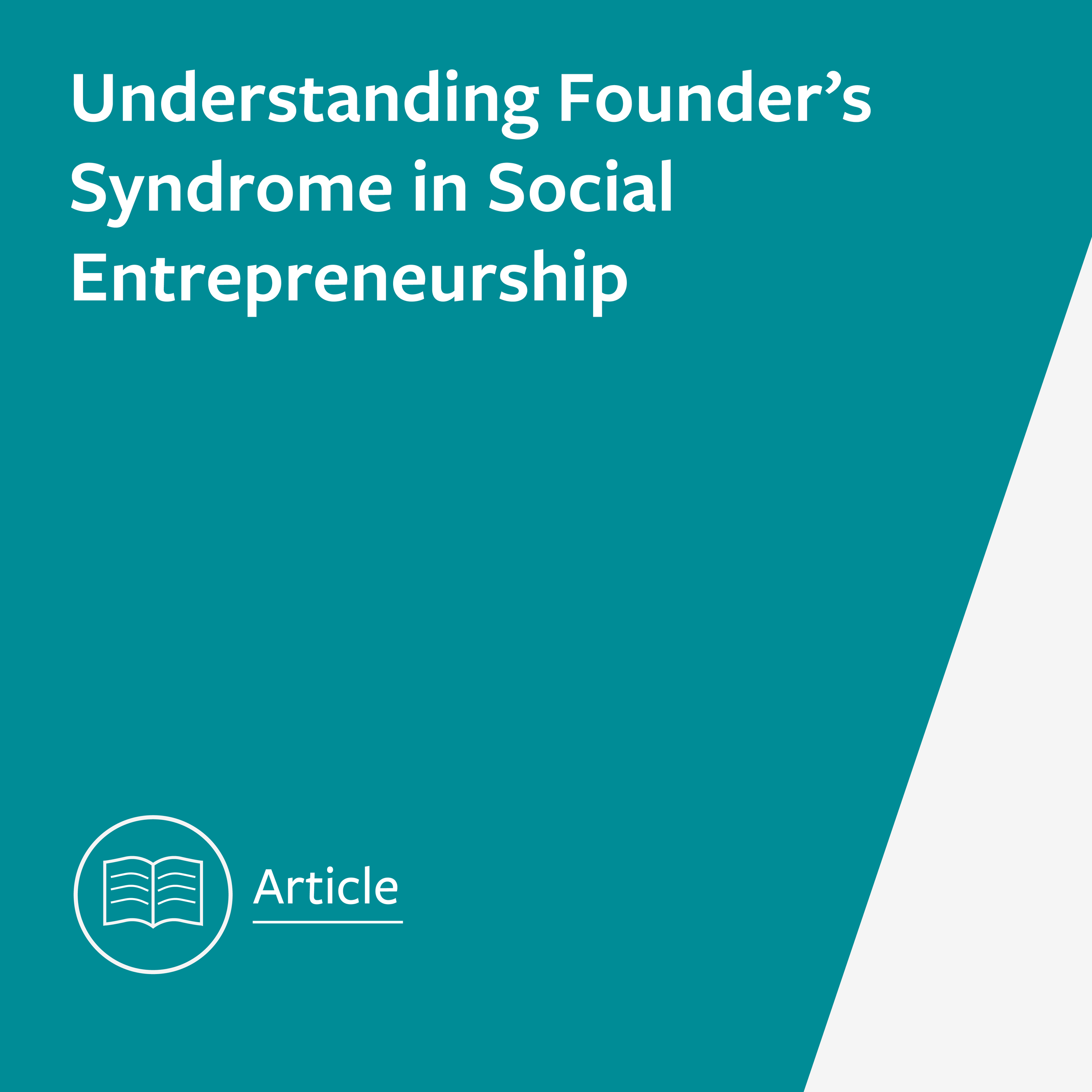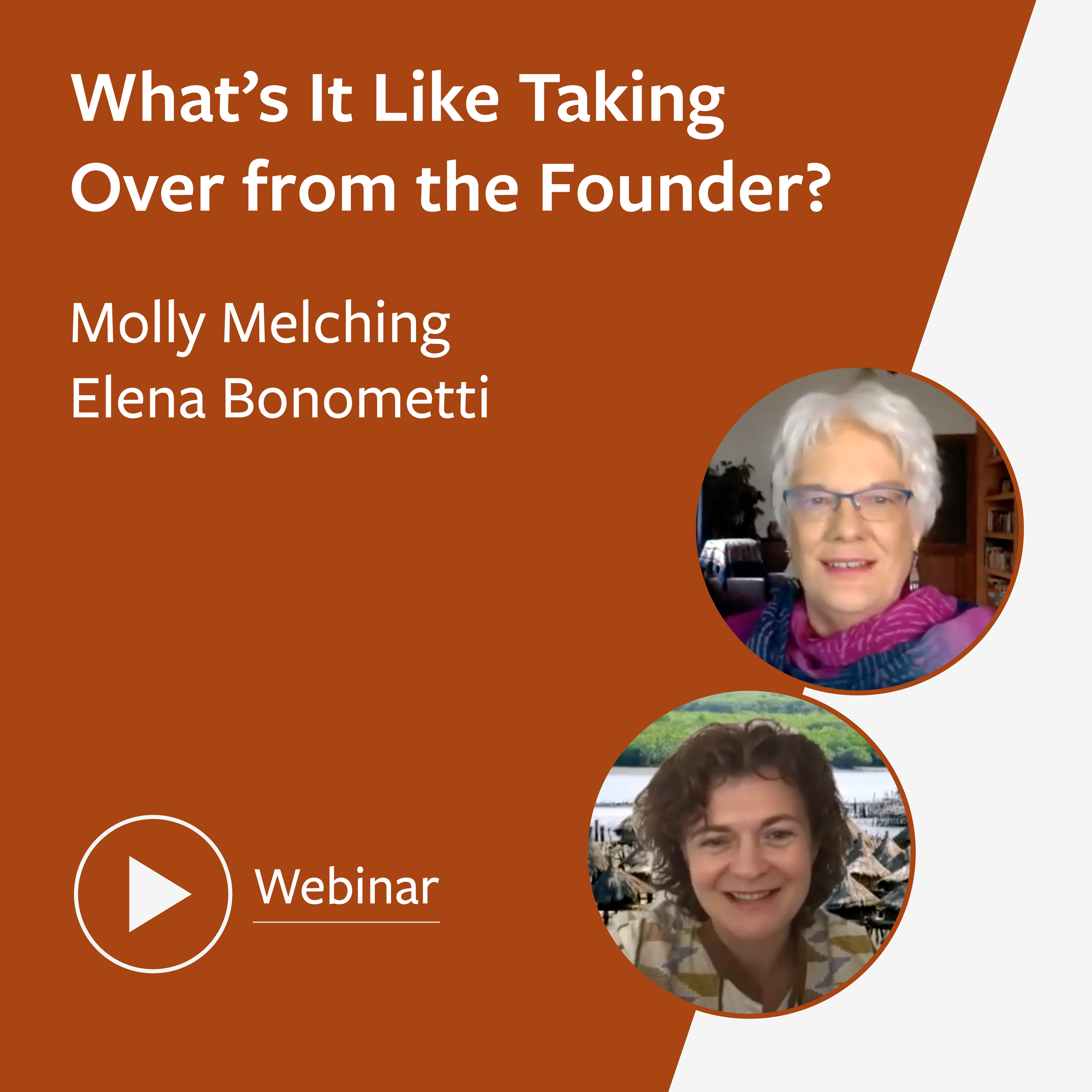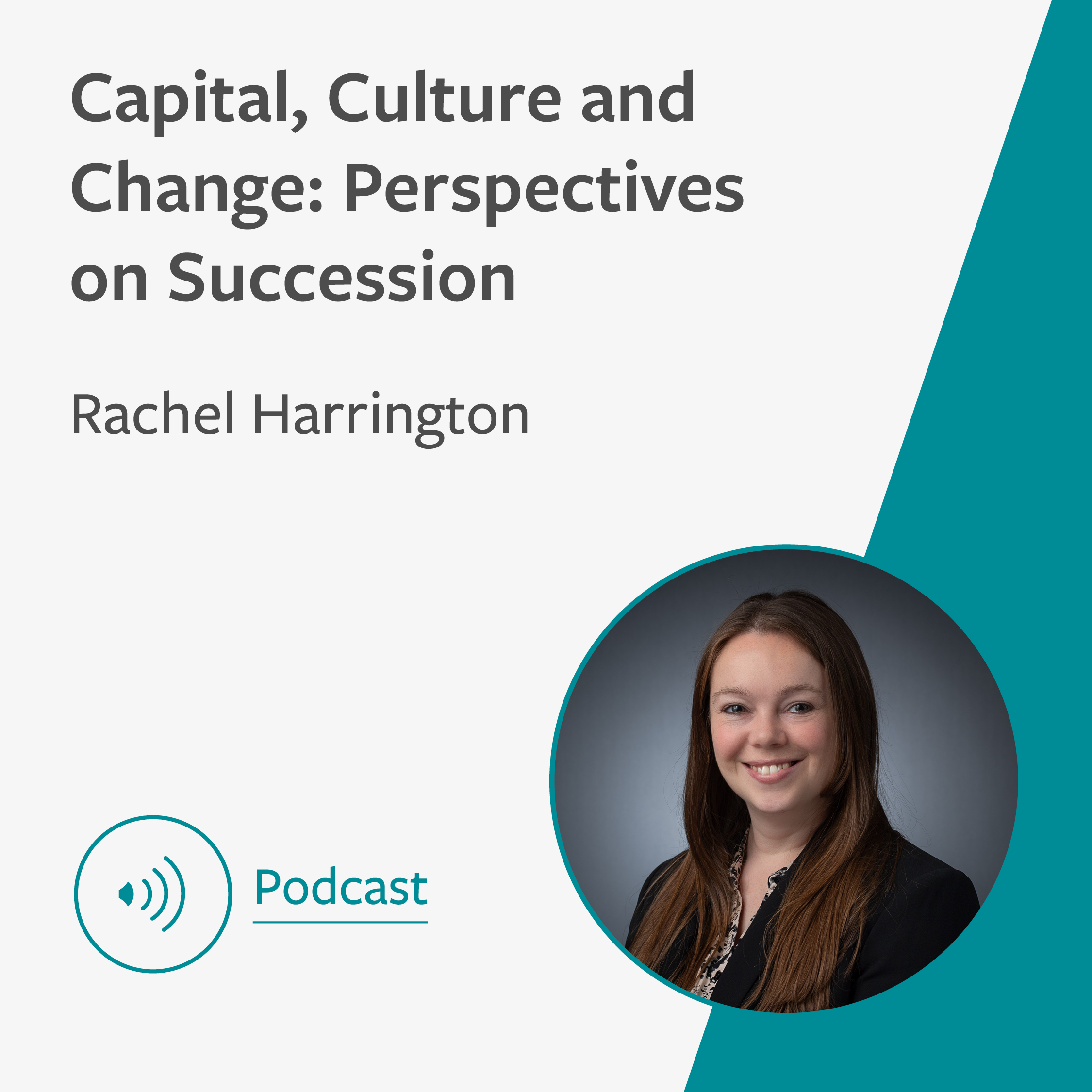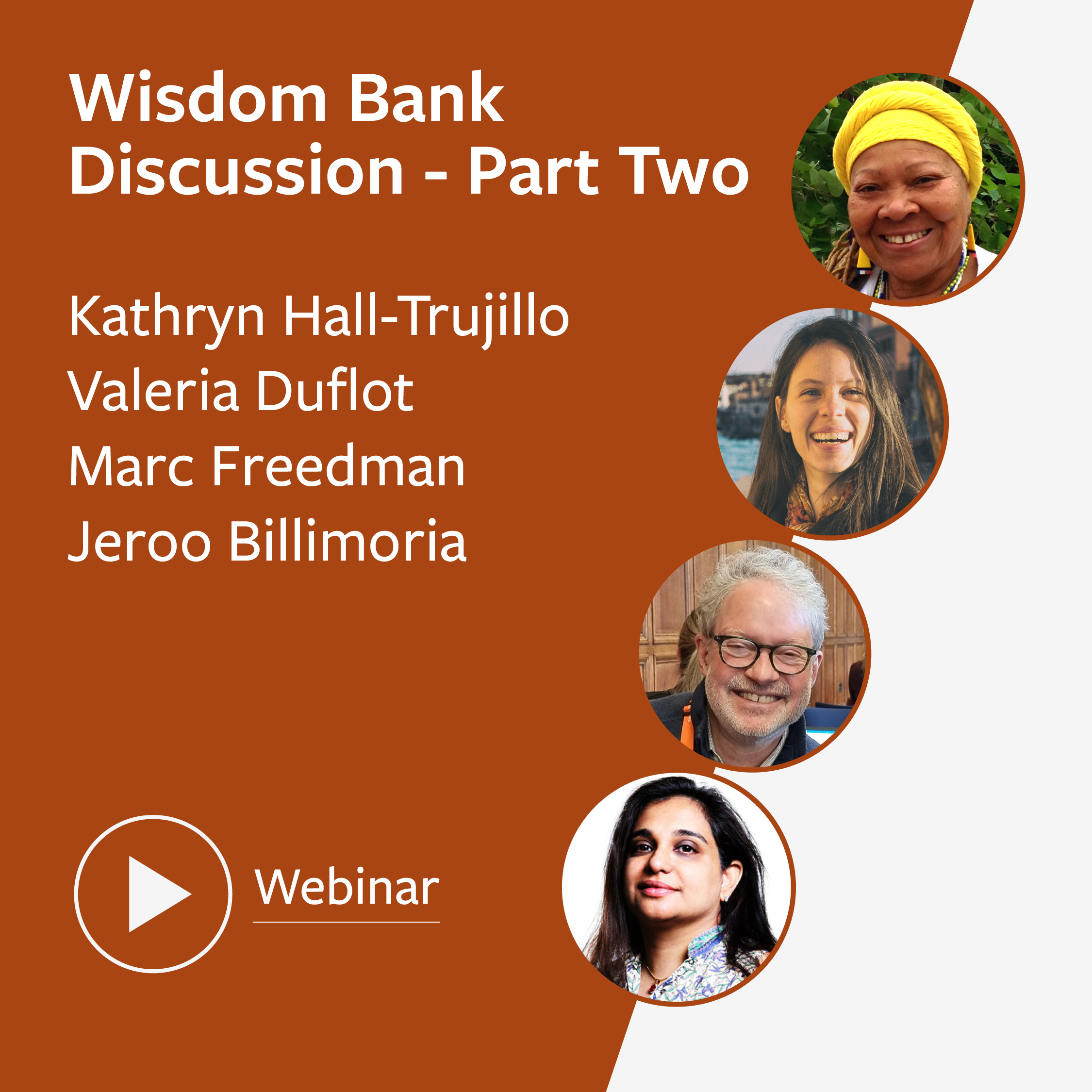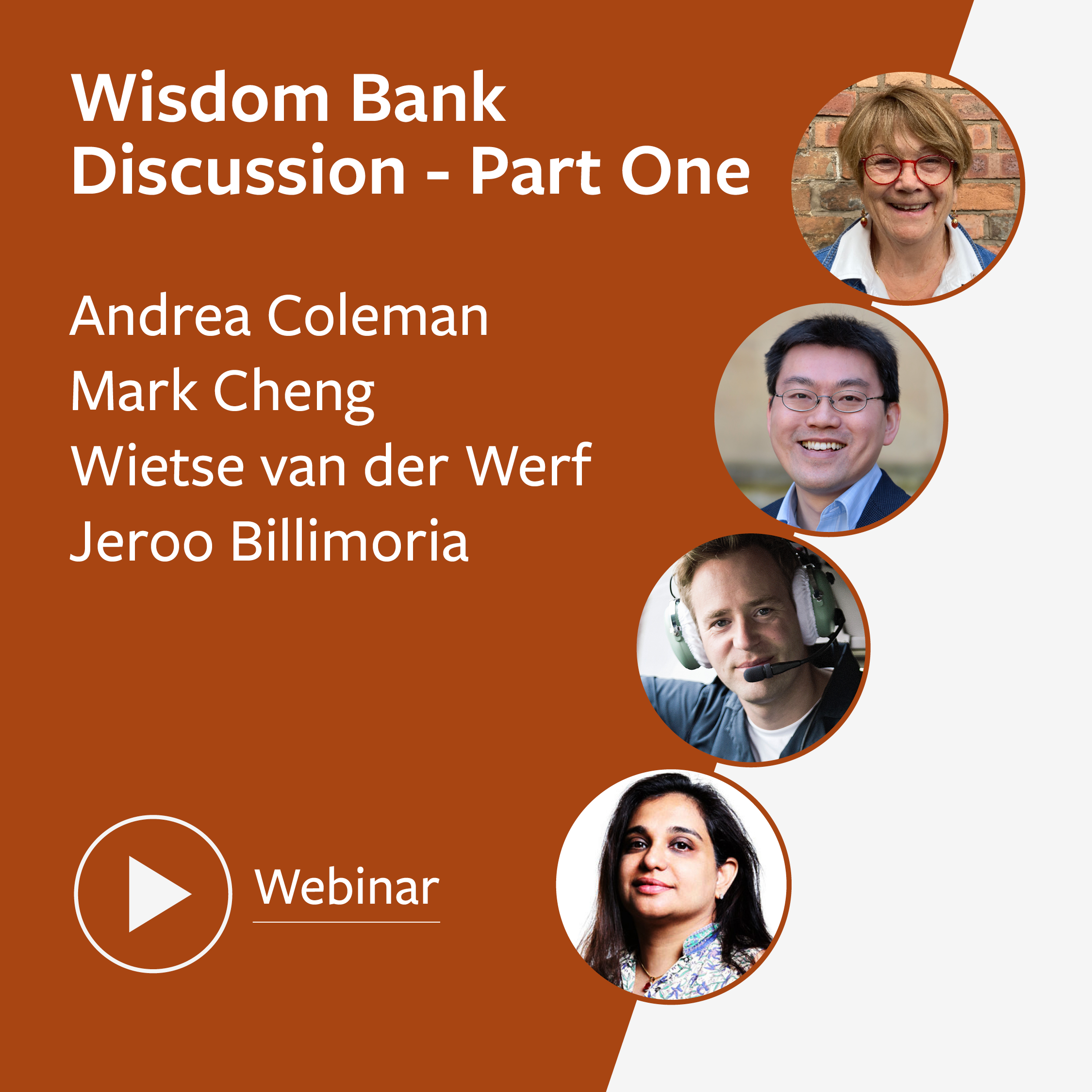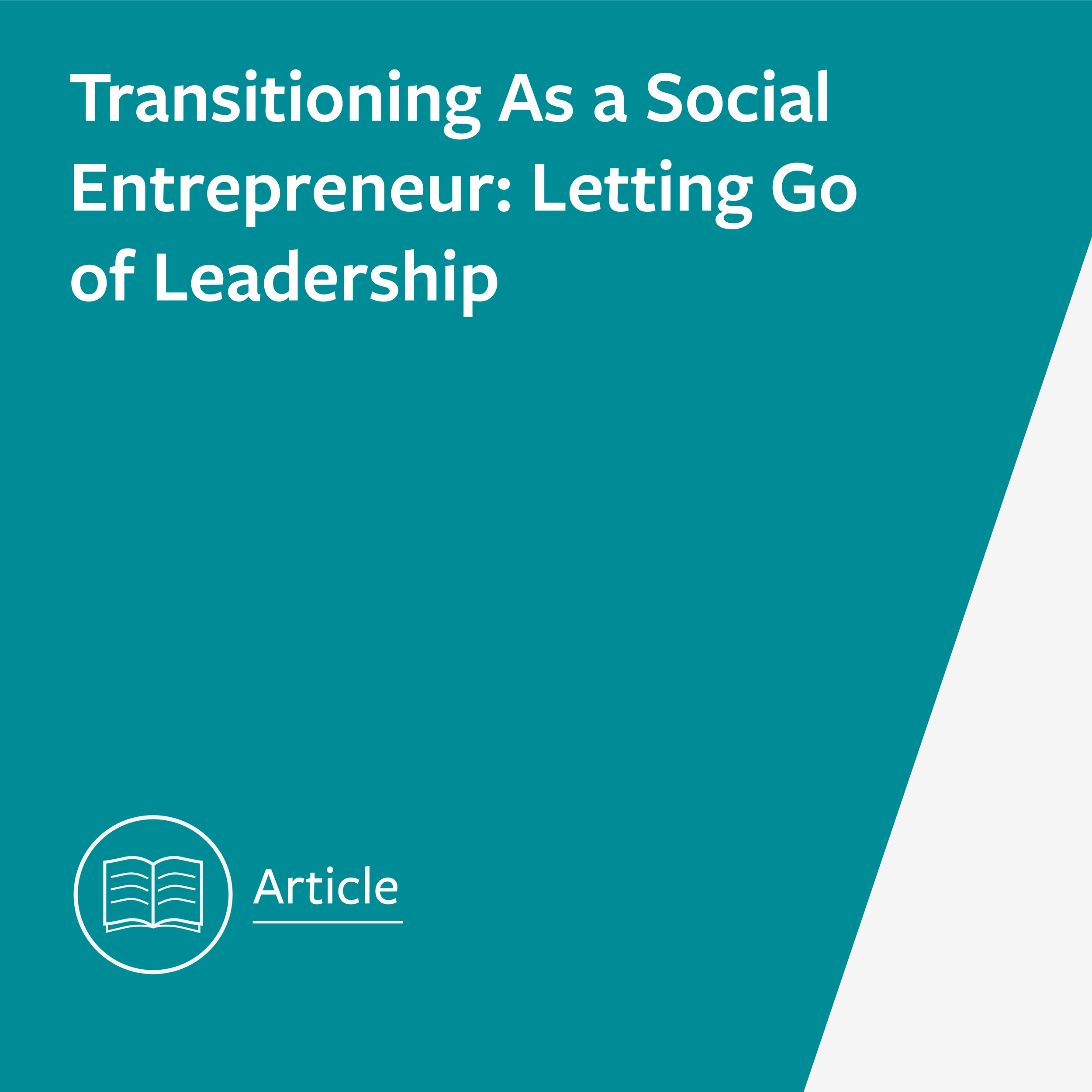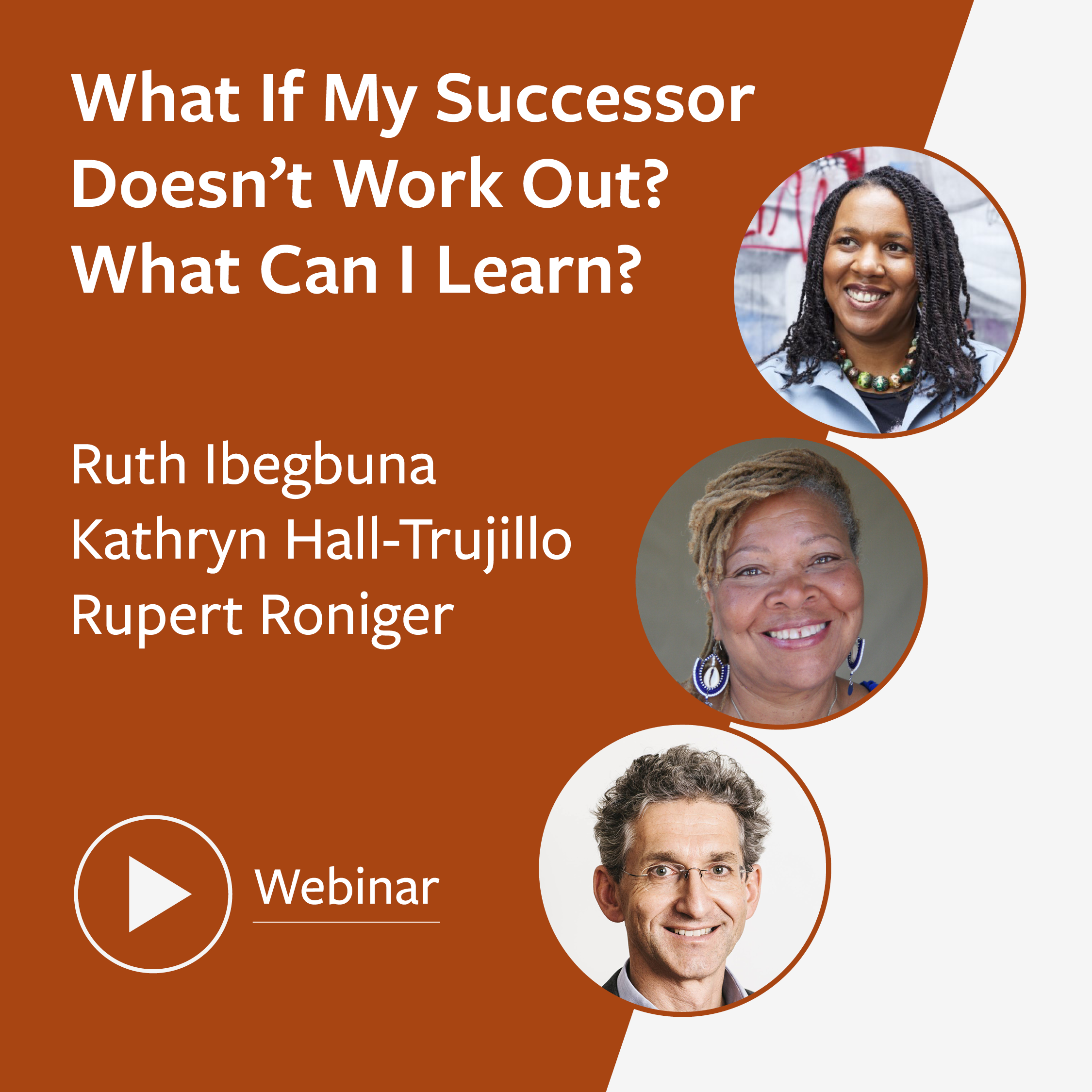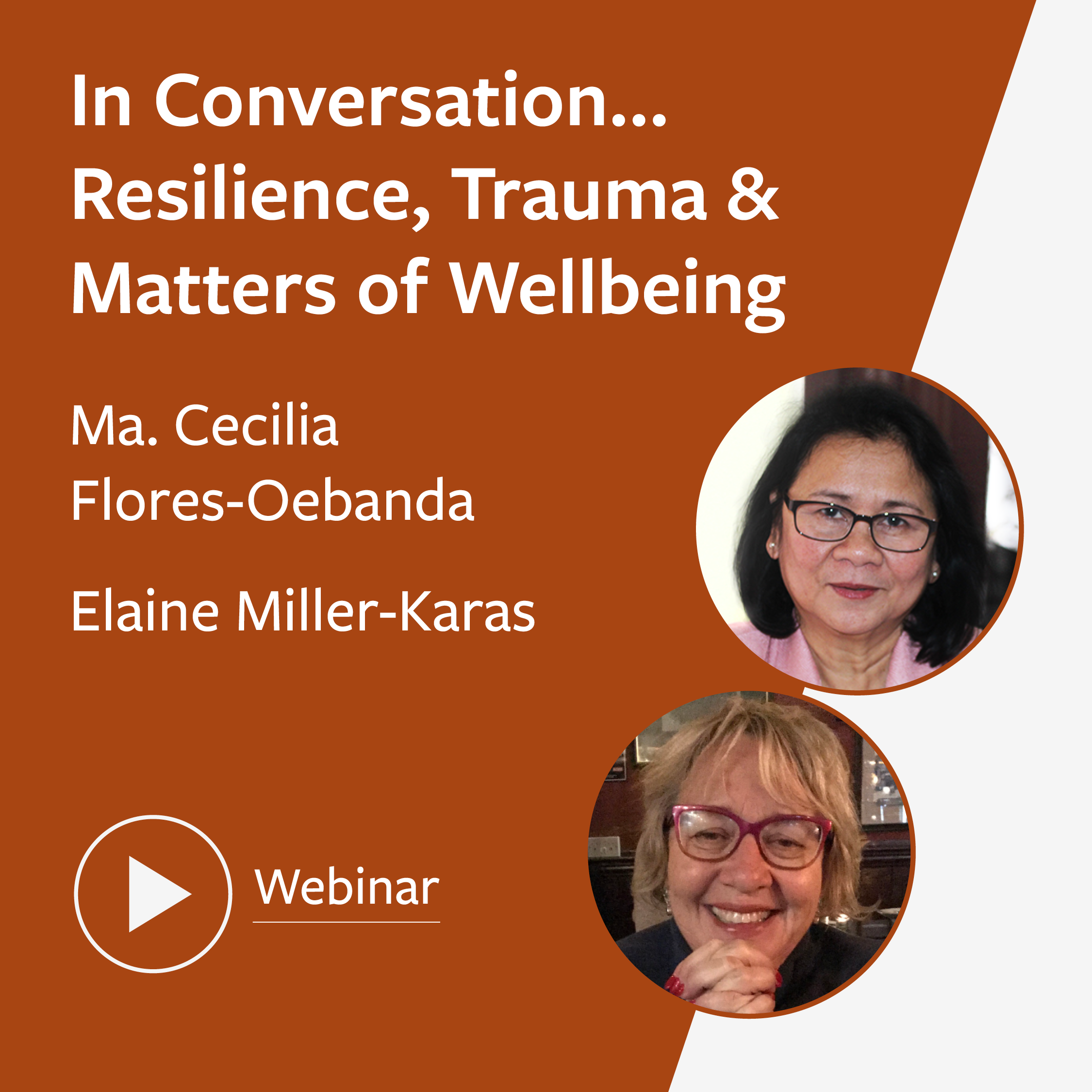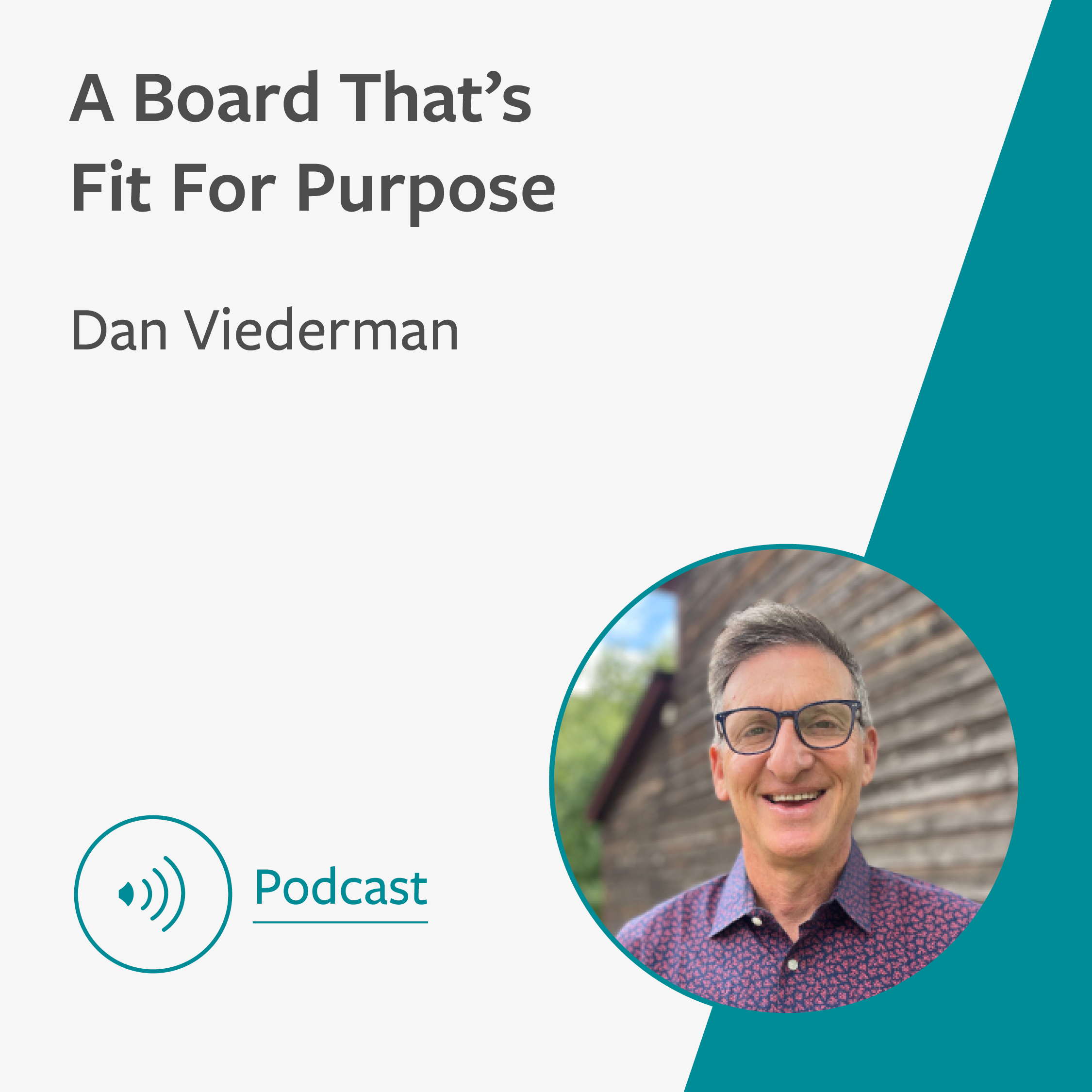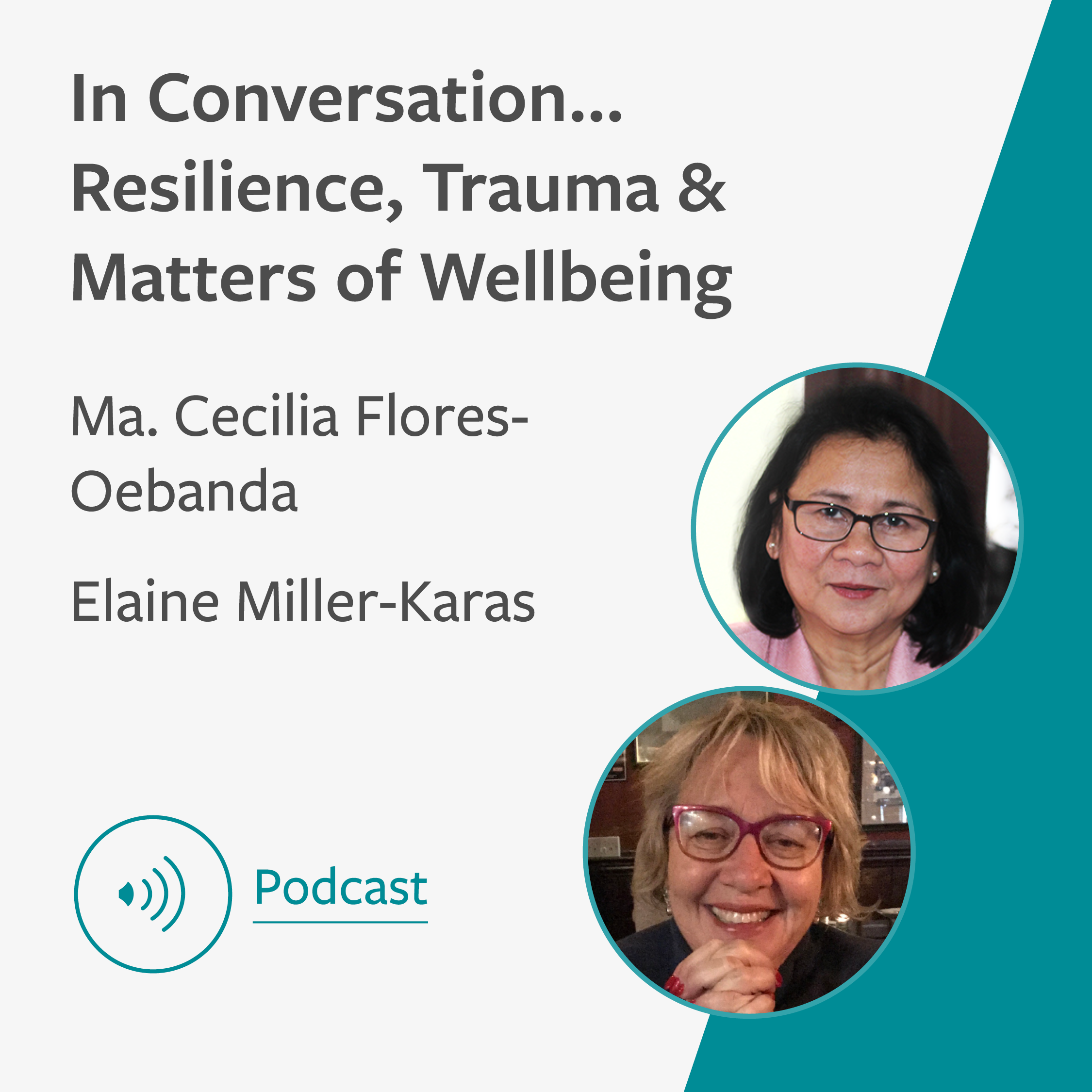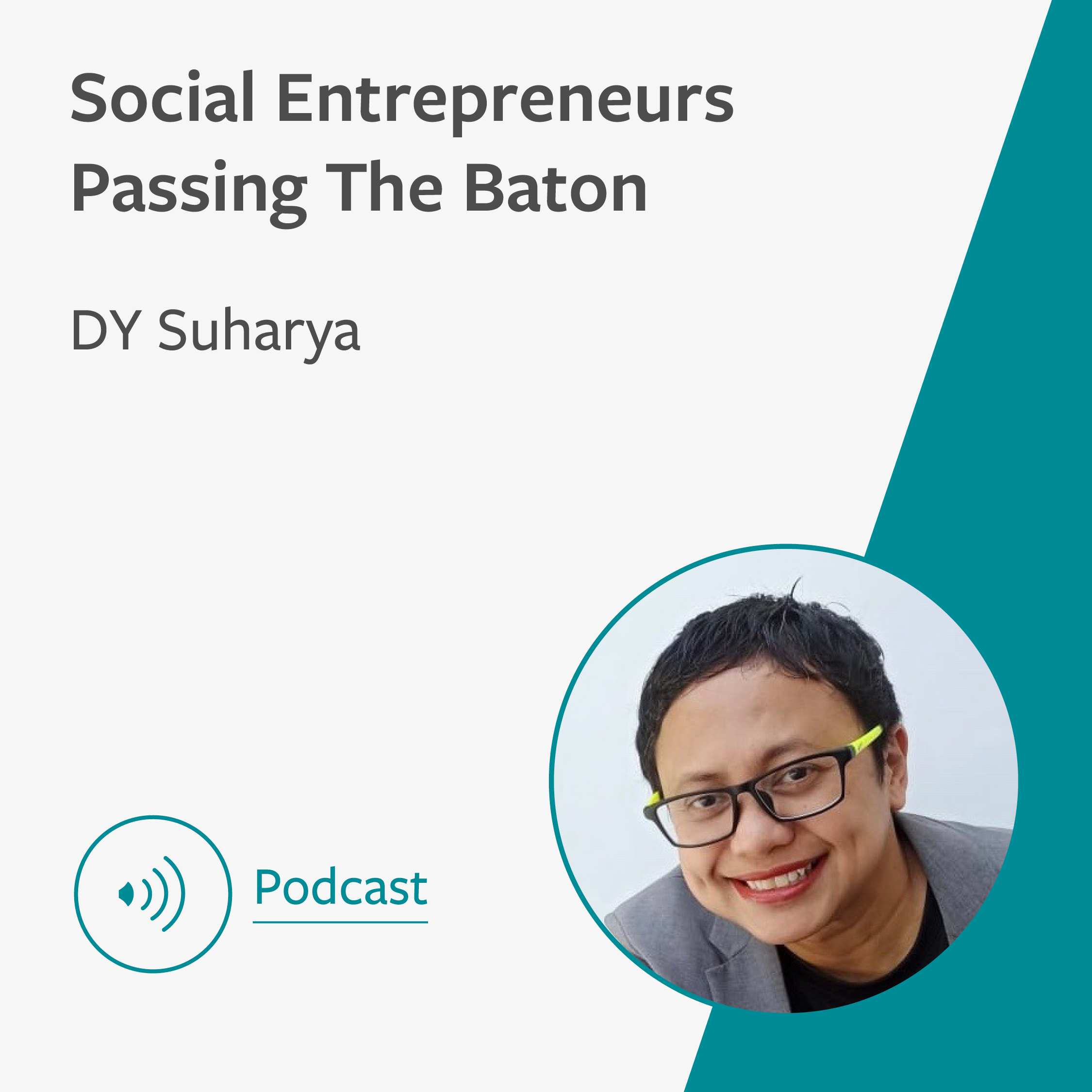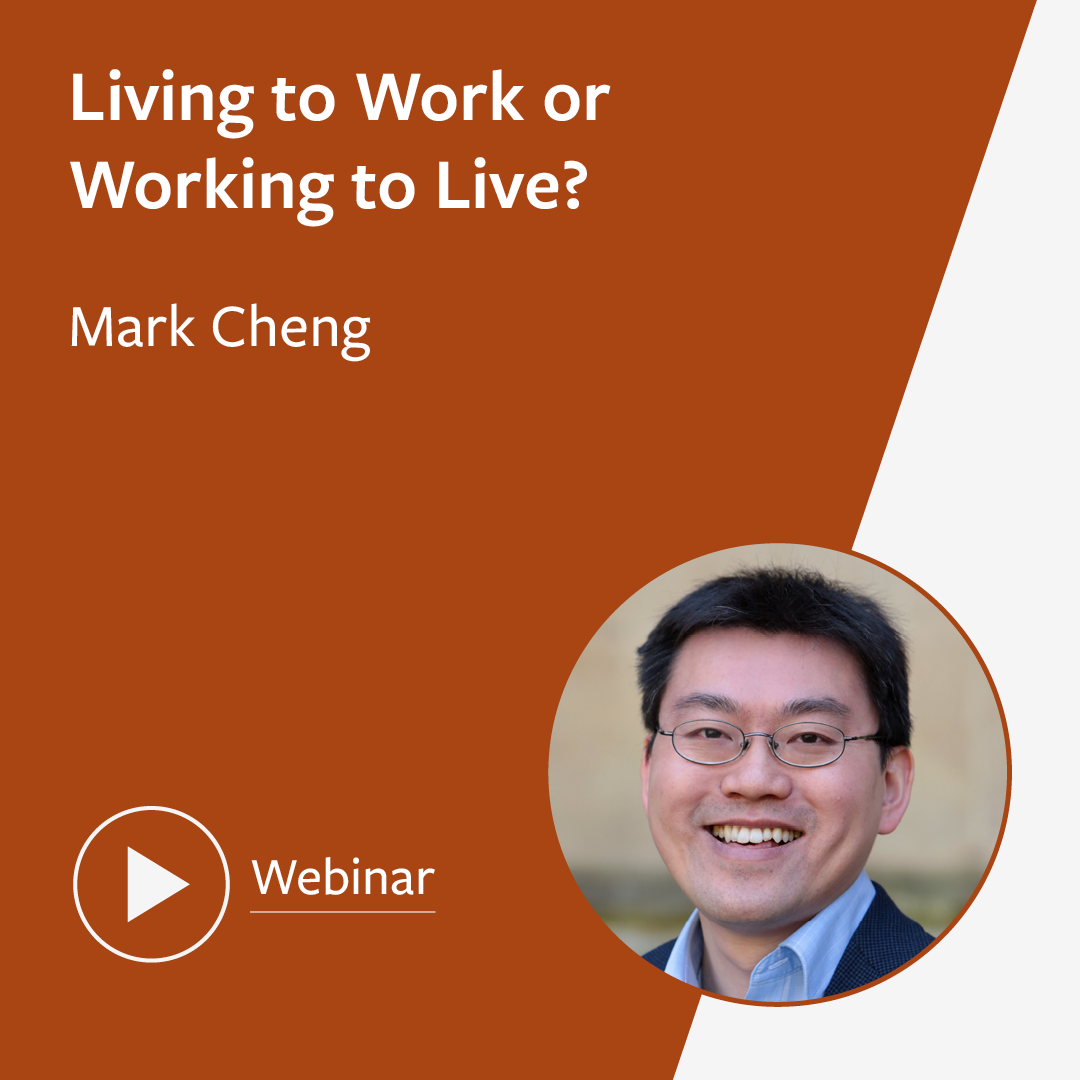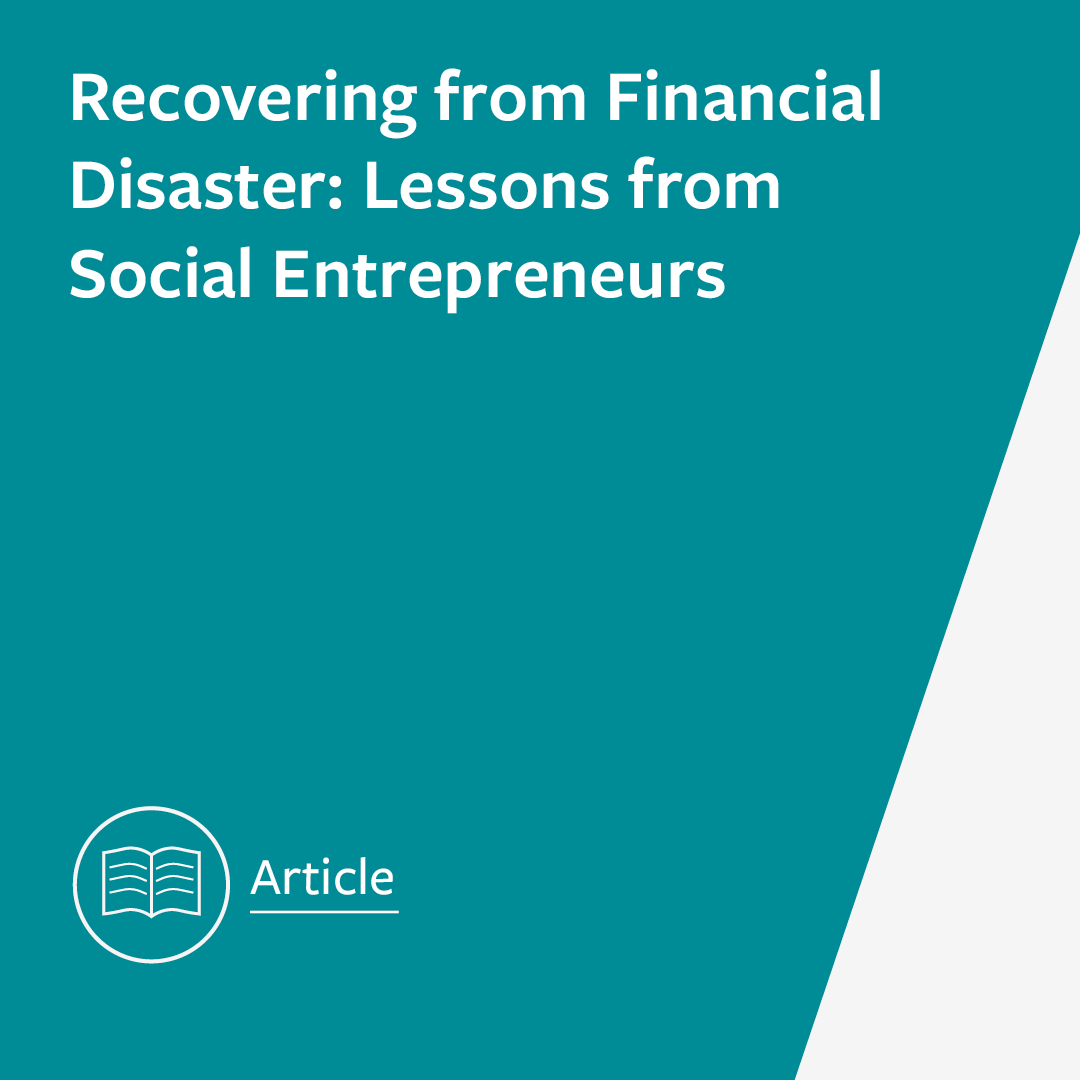Capital, Culture and Change: Perspectives on Succession
Packed with insights from our speaker, Rachel Harrington (Executive Director, Coutts Family Office and Coutts Institute) as she and our co-founder Andrea Coleman, explored key areas of succession, leadership, funding, boards and more. Bringing a wealth of knowledge from the private sector, and understanding the differences and similarities between family-businesses and social enterprises, Rachel discussed defining organisational values and culture, while providing practical tips.
There's Just So Much More to Do
We all know the feeling of ‘there's just so much more to do’ but celebrating your journey and the future that awaits is important. Our guest speakers Taffy Adler (former CEO of the Housing Development Agency), Gretchen Ki Steidle (Founder of Global Grassroots) and Andrea Coleman (Co-founder of the Elders Council for Social Entrepreneurs) discuss transition and building a culture of celebrating success while learning from what didn’t work. All bringing to mind the Elton John song ‘I’m Still Standing!’
Understanding Founder’s Syndrome in Social Entrepreneurship
This article, written by Dr Susanna Kislenko, explores the phenomenon of Founder’s Syndrome and what it can mean for an organisation.
What’s it like taking over from the founder?
Molly Melching (founder of Tostan) and her successor, Elena Bonometti discuss the succession process and how they both have a role to play in Tostan. We discuss this exciting journey and how they arranged matters to deliver Tostan’s incredible programmes.
In Conversation with Ma. Cecilia Flores-Oebanda
In this webinar Ma. Ceilia Flores-Oebanda discusses the trauma of fighting for freedom in the Philippines, working through her experiences and emotions with the Wellbeing Project, her work to tackle human trafficking and how she has approached her transition into retirement.
She also provides fantastic insights into choosing a board and the importance of respect and setting boundaries in succession.
Podcast: Co-leadership - How Greenpeace UK Do It
Areeba Hamid, Joint Executive Director at Greenpeace UK, joined us to talk about how she and Will McCallum decided to apply for the leadership role together, and how it works in terms of practicalities and relationship management.
Podcast: Capital, Culture and Change: Perspectives on Succession
Rachel Harrington and Andrea Coleman, discuss key insights on succession, leadership, funding, boards and the private sector, as well as exploring the differences and similarities between family-businesses and social enterprises.
Wisdom Bank Discussion - Part Two
Elders of the social innovation community (experienced social entrepreneurs of any age) discuss wisdom and what it means to them. This webinar features Kathryn Hall-Trujillo (Founding Director, Birthing Project USA: The Underground Railroad for New Life), Valeria Duflot (Social Innovator – Entrepreneur, Advocate, Strategic Adviser and On-demand Leader) and Marc Freedman (President / Co-CEO, CoGenerate) and a special message from Jeroo Billimoria (Founder, One Family Foundation and Catalyst 2030 - now known as Catalyst Now).
Wisdom Bank Discussion - Part One
Elders of the social innovation community (experienced social entrepreneurs of any age) discuss wisdom and what it means to them. This webinar features Mark Cheng (Founder / Managing Partner, Social Innovation Circle), Andrea Coleman (Co-founder, Riders for Health and Co-founder / CEO, Two Wheels for Life) and Wietse van der Werf (Founder / CEO, Sea Ranger Service) and a special message from Jeroo Billimoria (Founder, One Family Foundation and Catalyst 2030, now known as Catalyst Now).
Transitioning As a Social Entrepreneur: Letting Go of Leadership
An article reflecting on the key elements to consider in a founder’s emotional decision to leave an organisation. Inspired by the discussion with Kathryn Hall-Trujillo, Ruth Ibegbuna and Rupert Roniger in the webinar ‘What if my successor doesn’t work out? What can I learn?’
What If My Successor Doesn't Work Out? What Can I learn?
The Founder of a social enterprise does many things – the visionary, the fundraiser and they bring the magic. What can we pass on from our experiences and what do you need the successor to bring? Most importantly, how do you collectively maintain the culture and mission? Inspired by the song “I Can See Clearly Now” (sung by Jimmy Cliff) we reflect on all these aspects of succession planning with Kathryn Hall-Trujillo, Ruth Ibegbuna and Rupert Roniger.
In Conversation… Resilience, Trauma and Matters of Wellbeing
In this webinar, Elaine Miller-Karas and Ma. Cecilia Flores-Oebanda share ideas of how to navigate transition out of an organisation when difficult feelings or memories are stirred. They discuss practical tools to provide relief from stressful and traumatic symptoms and Ma. Cecilia shares her own experiences in this touching and important conversation.
Always Got a Friend
Carole King’s song “You’ve got a friend” beautifully epitomises the care and support that we as social entrepreneurs need while we look at the best way to celebrate our eldership in our succession and our leadership. Dr. François Bonnici, Adriana Craciun and Tim Hanstad discuss this fascinating topic.
Founder's Syndrome: Why Is It All About You?
Dr. Susanna Kislenko (Director, The Founder Leadership Research Lab at the University of Oxford and Adjunct Research Professor at Carleton University) shares her groundbreaking research on Founder’s Syndrome to help us understand it and avoid it.
Podcast: A Board That’s Fit For Purpose
We hear insights from Dan Viederman (an award-winning social entrepreneur) who shares his experiences of the succession process and his learnings from being on boards across the non-profit and commercial sectors.
Podcast: In conversation… Resilience, Trauma and Matters of Wellbeing
For a social entrepreneur, transition out of an organisation is an opportunity to reflect but it can also stir feelings that could be stressful or recall difficult memories. Elaine Miller-Karas and Ma. Cecilia Flores-Oebanda talk about navigating this and discuss practical tools to provide relief from symptoms of trauma.
Podcast: Social Entrepreneurs Passing the Baton - DY Suharya
DY Suharya describes her powerful founder journey, how her organisation works with the government in Indonesia and practical insights into her succession plan.
Living To Work Or Working To Live?
Mark Cheng tables some ideas on how we can change the culture within the social sector - to address the unhealthy martyr complex, the lack of financial recognition for founders and how we can support social entrepreneurs to prepare for their eldership.
Recovering from Financial Disaster: Lessons from Social Entrepreneurs
Facing bankruptcy or similar is a scary prospect but Attila von Unruh and Tracey Chambers provide important practical advice about what to do in preparation, and even when the crisis is imminent. This article explores some of the insights they shared.
Hero Culture Damaging the Social Sector?
Gary Cohen and Neelam Chhiber discuss this important question. Just some of the points covered - how social entrepreneurs come to be labelled as 'heroes'; how this affects their wellbeing; that it’s organisations, networks and movements (not lone 'heroes') that create systems change and the importance of recognising and empowering others.



